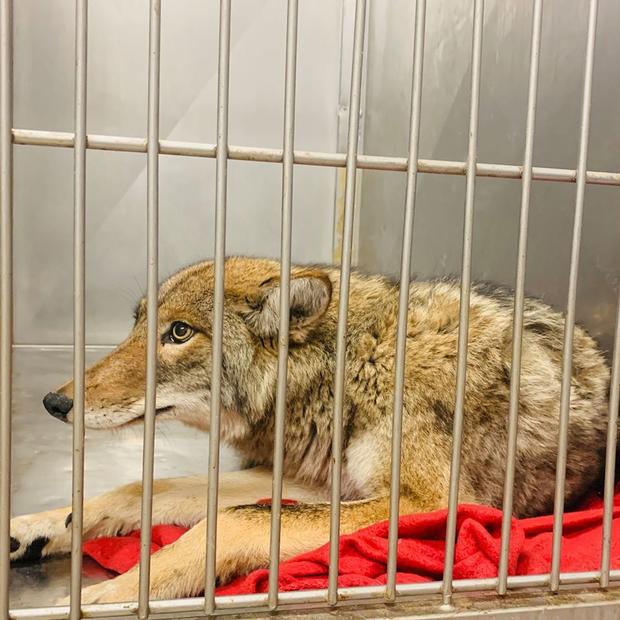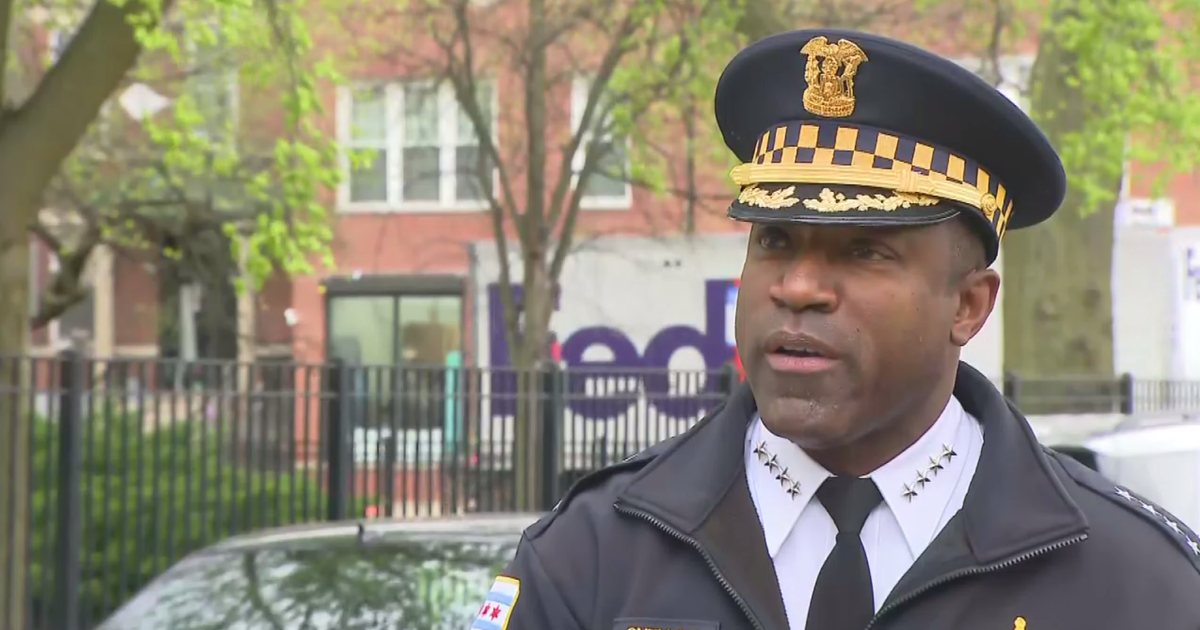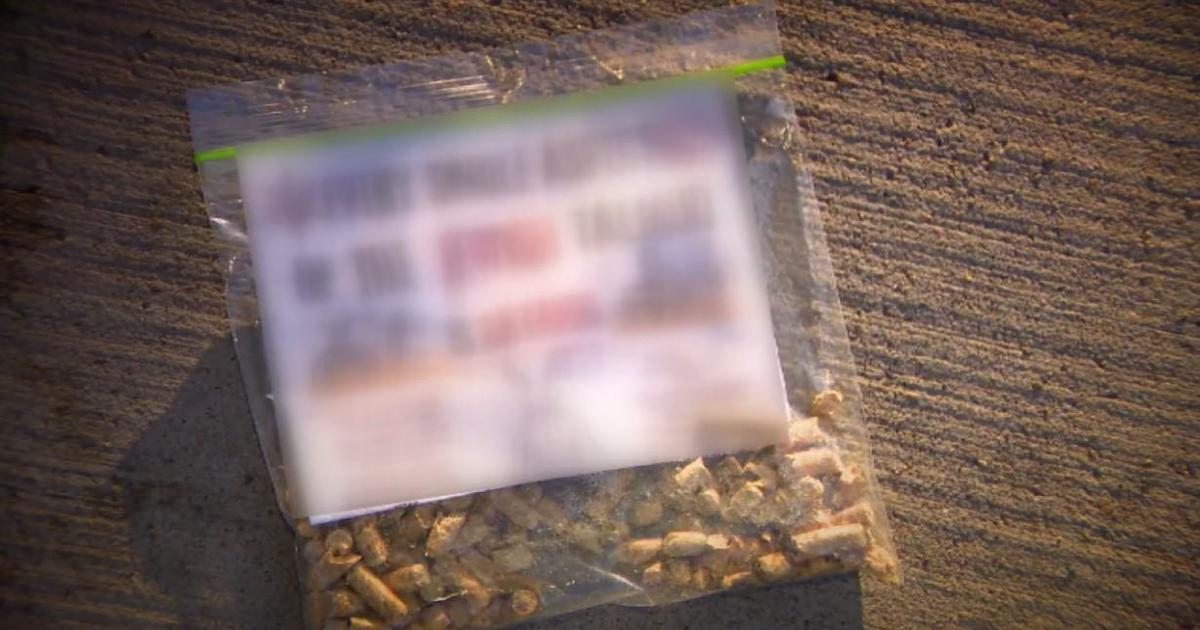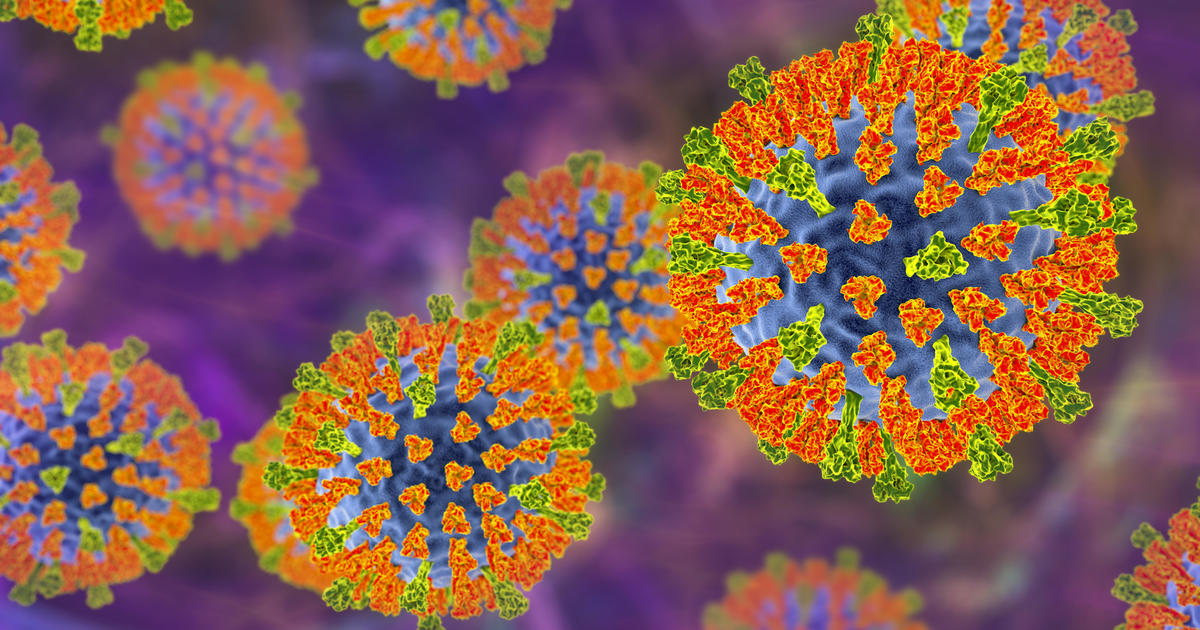Coyote That Bit Boy In Lincoln Park Won't Be Euthanized, Or Released Into The Wild
CHICAGO (CBS) -- Mercy, the coyote that bit a 6-year-old boy in Lincoln Park earlier this month, will not be euthanized, but also will not be released back into the wild, but instead will placed in a "permanent educational setting," according to the wildlife center now caring for the wounded animal.
"The coyote was extremely frightened upon admission to our facility. Although the coyote exhibited definite signs of stress and trauma, we have witnessed absolutely no aggressive behavior while in our care," the Flint Creek Wildlife Rehabilitation Center stated in a Facebook post.
Over the weekend, Chicago Animal Care and Control officials confirmed a coyote that was captured a day after the boy was attacked near the Peggy Notebaert Nature Museum is the same animal that repeatedly bit the child on the head.
CACC and Flint Creek officials said an examination of the coyote also revealed it had been shot with a BB gun, and have said that likely explains why it was limping and its aggressive behavior.
Flint Creek is now caring for the coyote, and said because DNA tests confirm it is the one that bit the boy, it won't be released into the wild.
"We will, instead, be placing the coyote, now named Mercy, in a permanent educational setting with specifics yet to be determined. We hope that you will respect and support our decision," the center said in a Facebook post.
The coyote was caught on Jan. 9, after CACC inspectors responded to calls of an injured coyote on the 1700 block of North Dayton Street. CACC inspectors used a tranquilizer dart to capture the coyote.
One day earlier, a coyote bit a 6-year-old boy "multiple times" on the head while with his nanny near the nature museum in Lincoln Park. The boy was running up the hill when the coyote attacked, according to Ald. Michele Smith (43rd). The boy may have accidentally gotten too close to the animal, Smith said the day after the attack.
Two runners from the DePaul University track team were running nearby, and helped kick the animal away before the boy was rushed to the hospital.
The boy was treated at Lurie Children's Hospital.
In recent weeks, several coyotes have been spotted walking the streets of the North Side, from Lincoln Park to Old Town and the old Cabrini-Green area.
While attacks on people are extremely rare, dogs have been targets.
A little more than a week before the boy was attacked, a 5-pound toy poodle puppy named Ki-Ki barely survived a coyote mauling near Burling and Willow streets in Old Town.
The night before that, a Schnauzer named Missy was attacked at Cambridge Avenue and Delaware Place in the Cabrini Rowhouses.
And another coyote spent more than four hours in a yard near North and Clybourn avenues and was caught on video howling. It was one of at least 10 reports of coyotes phoned into Chicago Animal Care and Control in the past week.
Coyotes also recently have been spotted on Elm Street near Cleveland Avenue – where a man said a coyote chased him and his dog – as well as near the Whole Foods at 1550 N. Kingsbury St., and the Pottery Barn just the other side of North Avenue, among other places.
Experts say coyotes have found ways to adapt to city life because there is food for them in the city such as rodents.
"In general, coyotes are adapting to cities. They're doing better and better over time as they learn how to make use of these urban landscapes that we've created," said Seth Magle of the Lincoln Park Zoo's Urban Wildlife Institute. "I feel confident in saying I think that their numbers are generally on the upswing."
The city says its coyote calls totaled about 268 in 2017. That number that dropped to roughly 146 by 2018, and then rose again to 331 for most of 2019. But those numbers could reflect multiple calls for the same coyote.
The Humane Society advises that if you see a coyote, you should not run or turn your back. You should instead shout or throw something in the coyote's direction, in what is called hazing.
If the coyote does not respond to hazing, it may have been fed by someone or found trash left out. Use caution, as the coyote could be aggressive.
Flint Creek officials said people also should never feed coyotes, and said if you put food outside for a pet, you should remove it and clean up any spilled food before dark, so as not to attract coyotes.
You also should not leave pets outside unattended, especially at night, and shouldn't use a retractable leash that allows your dog to wander a long distance away from you.
If you see a coyote while walking a small dog, you should pick up your pet, and don't approach the coyote. You should also never approach coyote pups or dens.
Officials said there is no evidence that there is a larger coyote population in the city, but there is an increase in sightings.




